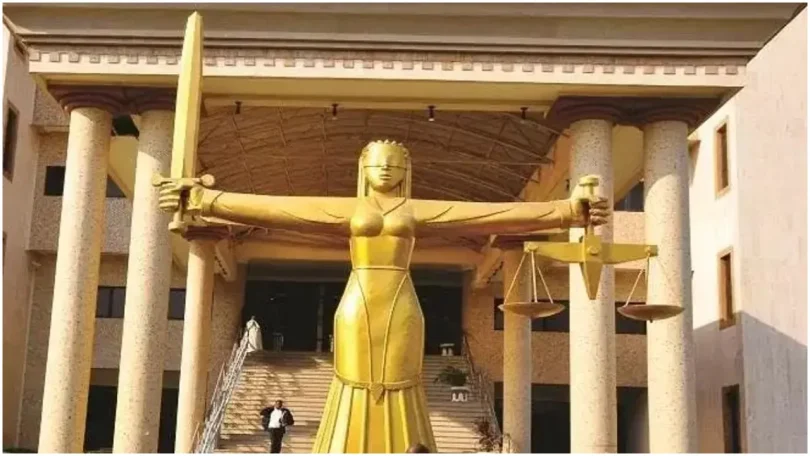Proceedings in the terrorism trial of the Indigenous People of Biafra (IPOB) leader, Nnamdi Kanu, took a dramatic turn on Monday as the trial judge, Justice James Omotosho of the Federal High Court in Abuja, pleaded with the defendant to seek proper legal counsel before continuing to represent himself.
Justice Omotosho, who made the appeal “in the name of God Almighty,” urged Kanu to consult experts in criminal law, stressing that the case was too complex to be handled without professional guidance.
“I am begging you in the name of God Almighty to consult properly,” the judge said. “I know you are educated, but you are not a lawyer. This is not economics; this is criminal prosecution. Please, my brother, make adequate consultation.”
The court had previously adjourned the matter for Kanu to open his defence after he dismissed his legal team, led by former Attorney-General of the Federation, Chief Kanu Agabi (SAN). The IPOB leader is facing seven counts of terrorism-related offences brought against him by the Federal Government.
At Monday’s sitting, five seats were reserved for Kanu’s witnesses in anticipation that he would open his defence. However, when the case was called, Kanu told the court that there was no valid charge against him and that the prosecution had failed to establish any case requiring a defence.
“There is actually no charge against me,” Kanu said. “If there is no case against me, it will be futile for me to enter any defence.”
Responding, Justice Omotosho explained the available legal options open to a defendant after the prosecution closes its case—making a no-case submission, entering a defence, or resting on the prosecution’s case and filing a written address.
The judge reminded Kanu that the court had already ruled on his earlier no-case submission, holding that he had a case to answer.
Kanu then sought a week’s adjournment to file a written address arguing that there was no valid law supporting the charges against him. He also asked the court to either release him or grant him bail.
The prosecution counsel, Adegboyega Awomolo (SAN), countered that Kanu’s refusal to open his defence effectively marked the conclusion of his case, urging the court to proceed to judgment.
Justice Omotosho, however, clarified that Kanu’s position—that the charges could not stand—constituted a legal argument that must be formally submitted in writing.
The judge granted Kanu four days to file and serve his written address, after which the prosecution will respond. The matter was adjourned to November 4, 5, and 6 for either the adoption of written addresses or for Kanu to open his defence, should he change his mind.

